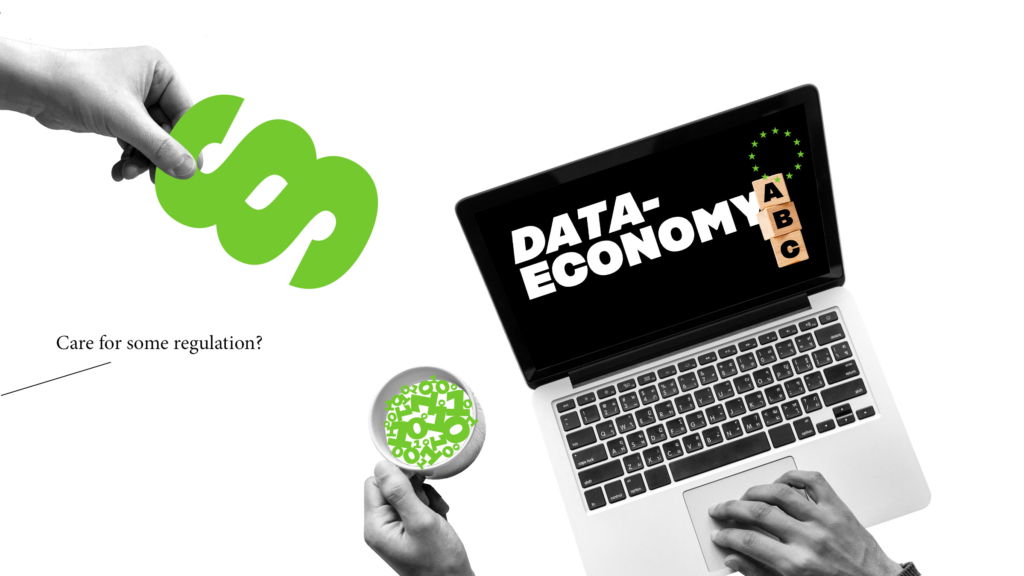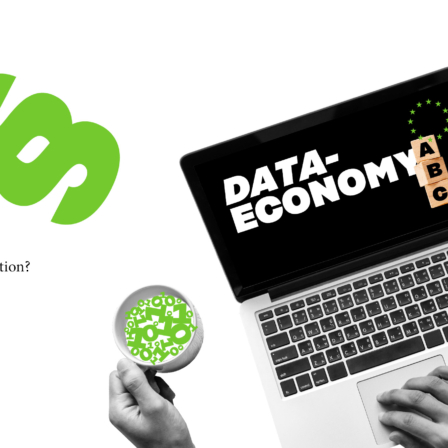Basics of the Data Economy: self-learning and course materials on EU data regulation
The EU is creating new rules for online platforms and the use of business data and AI. These self-learning materials will help businesses, professionals and all users of digital services to understand the opportunities and changes brought about by the new rules.
Get to grips with the new rules of the data economy!
Fair rules for online platforms
Learn about the new rules on social media platforms and the rights of users and content providers.

Fair rules for data sharing
Delve into the new rights of smart device users. Discover the business opportunities offered by new data sources.

What is it about?
The rules of the data economy in the European Union are being revamped. Several new data regulations will govern the way platforms operate and promote the use of data in different ways. The changes underway will create new opportunities, especially for smaller businesses.
Sitra is helping digital users and businesses to better understand the complexities of data regulation. We are supporting the development of data economy skills to help companies identify new opportunities for business and innovation in the changing environment. We provide information and insight on emerging regulation in an accessible format.
The Basics of the Data Economy package of course materials developed by Sitra includes self-study courses that are available to all, free of charge. We also encourage their use in educational institutions and for business training. The first course was produced in September 2023 and is available on the eOppiva digital learning platform.
Courses
Course 1: Fair rules for online platforms
When you create content for social media platforms or advertise online, you must comply with the terms and conditions set by your service providers. Platform companies determine who can see the content you produce and what content you can see.
Digital platforms such as social media have become increasingly important in society. At the same time, attention has been drawn to problems such as misinformation and fraudulent online transactions. New rules that will soon come into force in the EU will require digital services to act more fairly. They will have to be more transparent about recommending content, and users will have new ways to protect their rights. The new rules aim to balance competition between companies of different sizes on online platforms and to make the online environment more trustworthy and secure.
What can you learn from the course?
- The training will provide information on how the new rules for digital services in the EU (Digital Market Act and Digital Services Act) will affect users and companies providing services.
- Users of digital services will learn about the ground rules for platforms. For example, they can learn how to defend their rights as users, as subjects of digital profiling or as content providers.
- For business users, the course provides information on how better access to data collected by platforms can improve a company’s own customer insight or marketing. Business professionals will also be able to identify new business opportunities after taking the course.
Course 2: Fair rules for data sharing
Sharing and combining data held by businesses and public authorities opens up opportunities to build new services. But data sharing requires clear rules to safeguard the rights of individuals and the bargaining power of small businesses. To this end, the EU has introduced new data-related regulations, the Data Act and the Data Governance Act, the potential of which will be explored in this course.
Data sharing takes place, in particular, through the use of smart devices. Smart devices of all kinds are becoming increasing common in people’s daily lives and in industrial environments. When used, these devices collect data that can be beneficial to device users and to the developers of new services.
With the new regulations, the EU will require smart device manufacturers to give device users access to their own data, thereby promoting competition for services created from device data and preventing supplier lock-in. In addition, data sharing will be facilitated by trusted data intermediaries and data-altruistic organisations that operate in a controlled manner and in compliance with the new rules.
To compete in a data-driven economy, companies need to understand the rules of the data economy and the opportunities it offers.
What can you learn from the course?
- The course provides a comprehensive overview of how the EU Data Act and Data Governance Act affect data sharing and new business opportunities.
- Smart device users will learn about their new rights. Product manufacturers will learn about their obligations, and other companies will learn about opportunities to develop and offer value-added services for smart devices.
- Businesses can learn about new trust-building entities, such as registered data intermediary services and data-altruistic organisations. The course will also provide information on how public sector data can be made available to businesses, and under what exceptional circumstances businesses are obliged to make their data available to the public sector. The course will also explain what to do if a company receives a request for access to data from outside the EU.
How can you benefit from the courses?
The course material can be used for different purposes. They are published under an open licence that allows them to be modified and translated. The Creative Commons Attribution-ShareAlike 4.0 licence (CC BY-SA 4.0) allows for the editing of the course material and publication of the edited version under the same licence, including for commercial use. However, the original source must be properly acknowledged and the adaptation must be published under the same licence.
You can download the course material below.
Please note the following when distributing or adapting the material:
- Sitra must be credited as the original author and a link to Sitra’s website www.sitra.fi must be included in any further distribution.
- Only Sitra can be credited as the publisher of the original course. Sitra cannot be associated with the course in any other way and does not support or contribute to the use of any variations on the original material.
- Any variation based on the course must be published under exactly the same licence: CC BY-SA 4.0.
- The original source must be cited, for example, as follows:
This material is based on the publication Basics of the Data Economy © 2024 by Sitra and is licensed under CC BY-SA 4.0 .
- When published, the modified version of the course must be given its own name. The modified version cannot be published under the name used by Sitra.
- Modifications must comply with all legal and good practice requirements.
Please get in touch! We would like to know how you have used our course material. Please email us about your use of the material at the planning stage. If you have any questions about the further use of the material, please contact Sitra’s Tarmo Toikkanen and Pinja Heimala.
Who is involved?
The work involves a wide range of data economy experts from the private and public sectors, as well as from research and various other organisations in Finland. The development of the courses is part of the national roadmap for the data economy launched by Sitra.
The courses have been written by Tarmo Toikkanen, Pinja Heimala and Meeri Toivanen from Sitra. The experts and authors of the first course are also researchers from the Legal Tech Lab at the University of Helsinki.







